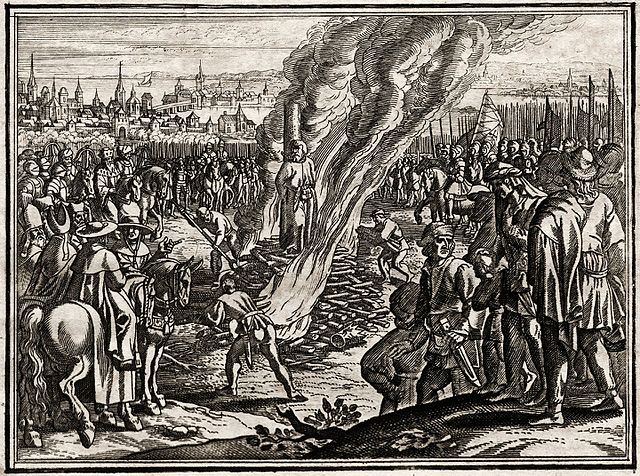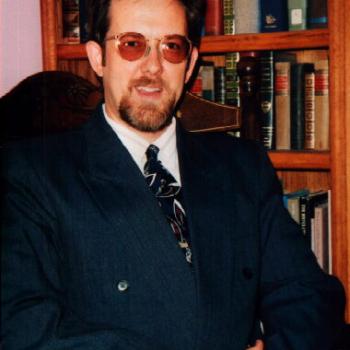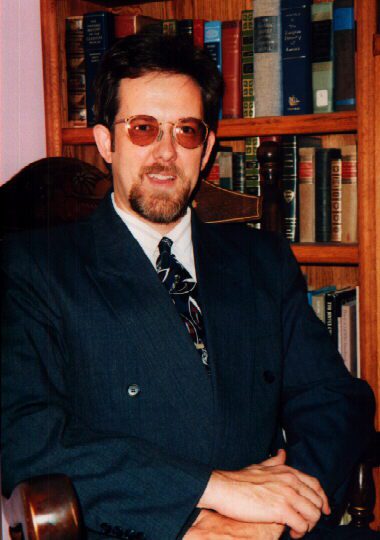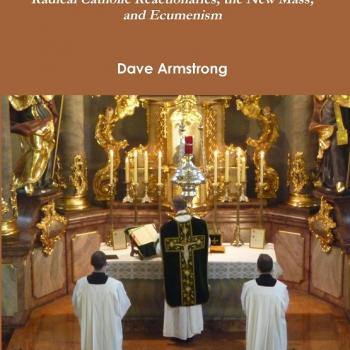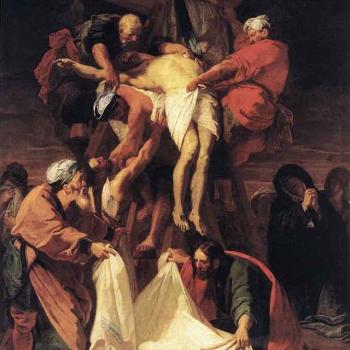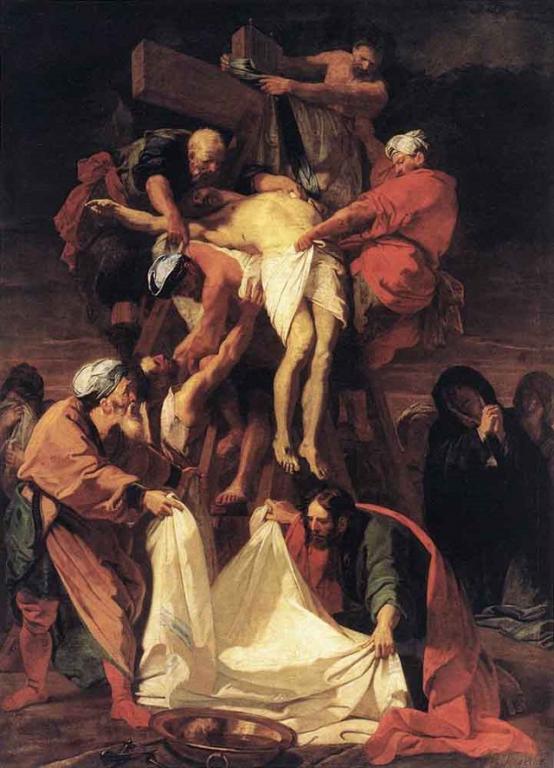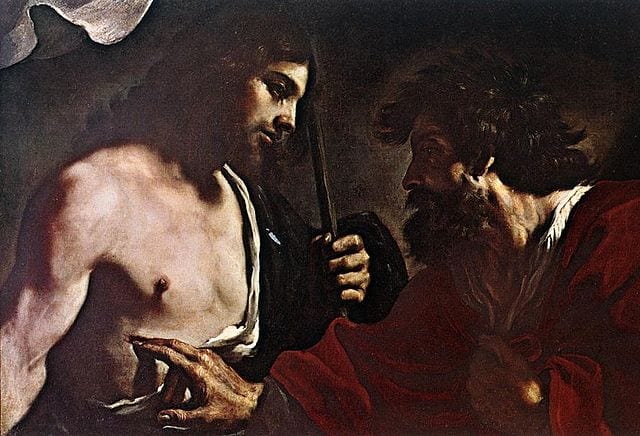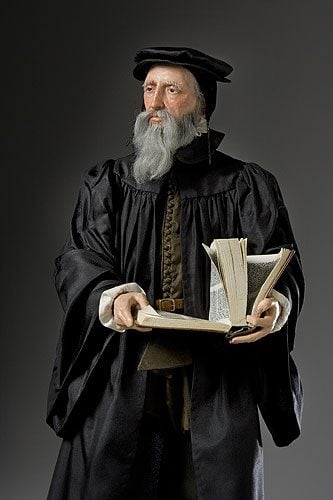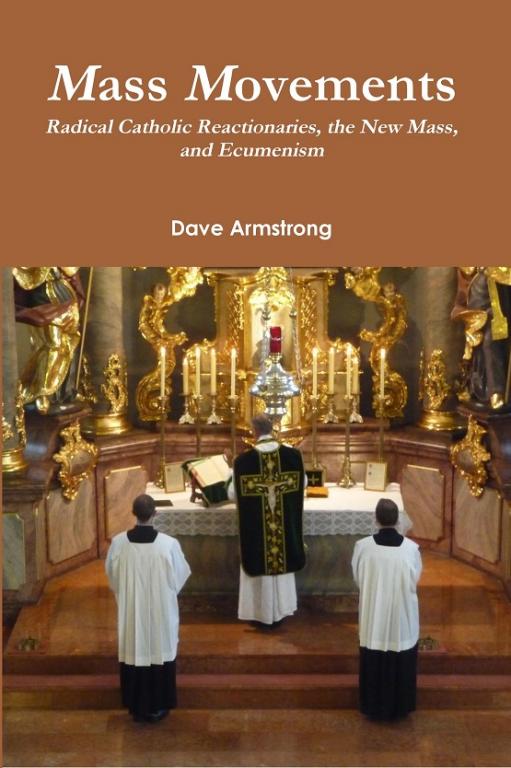
From my 2012 book, Mass Movements: Radical Catholic Reactionaries, the New Mass, and Ecumenism , [follow the link for book and purchase information; only $2.99 as an e-book), pp. 135-153.
*****
[based on real dialogues; my opponents’ words are accurately paraphrased and italicized, and in blue. Some are radical Catholic reactionaries, some not]
New Introduction (6-2-19)
This incident, which occurred on 14 May 1999, when Pope St. John Paul II received some Muslim dignitaries, greatly scandalized the traditionalists of that time, the radical Catholic reactionaries, and many plain old orthodox Catholics who are not in either of those camps. It remains a live issue today: almost exactly twenty years later. Hence, the latest fashionable reactionary book, Infiltration, by Taylor Marshall (May 2019) takes a swipe at the late great pope:
Pope John Paul II scandalized the world when a photo surfaced of him kissing the Koran on 14 May 1999. . . . The Catholic patriarch of Babylon Raphael Bidawid was present for the meeting and [described] . . . what had transpired at this photographed meeting: “At the end of the audience the Pope bowed to the Muslim holy book the Koran, which was presented to him by the delegation and he kissed it as a sign of respect.” The Koran explicitly states that Jesus Christ is not the Son of God and that the Trinity is a false doctrine. How a pope of the Catholic Church could kiss the scriptures of Islam is unimaginable. (chapter 26)
I engaged in many vigorous debates with traditionalists (or reactionaries, depending on exactly what they believed) shortly afterwards. Some of them were fairly close friends of mine. I wanted to bring back this compendium of those dialogues, included in my second book about radical Catholic reactionaries, precisely because Taylor Marshall has again brought it to the attention of multiple thousands of people.
If you are someone who can’t conceive or imagine in your wildest dreams any possible orthodox Catholic defense of this action by Pope St. John Paul II, then this article is for you. Agree or disagree (but especially the latter), it will “stretch” and challenge you, maybe make you squirm a bit. You’ll be encouraged to think in ways that maybe you have never considered before.
I’m not a modernist. I absolutely detest it and have a web page that refutes it. I am not an indifferentist as regards other religions. I believe all that Holy Mother Church teaches.
I’m rock-solid orthodox. I adhere (as does Vatican II) firmly to “no salvation outside the Church.” I have no particular fondness or love for Islam. I am a strong proponent of liturgical reverence and tradition (attended Latin Mass for 25 years). None of those rationalizations can explain away what I write below, so don’t go there. It won’t end well for you, believe me. This is simply an honest disagreement. I have thought quite a bit about this, and analyzed it, precisely because I myself was challenged in debate to do so. But if you want to discuss my arguments here, feel free!
I also wanted to “revisit” this debate and discussion as a way of pointing out that severe and prolonged, passionate papal criticism is nothing new at all. It was going on full strength twenty years ago and earlier. I have often noted how those who are the loudest today in condemning Pope Francis for this, that, or the other (almost always wrongheadedly and on specious grounds, as I have personally discovered, because I have defended the Holy Father scores of times), are the same folks who were condemning Pope St. John Paul II back in 1999.
They hounded him all the way up to his death six years later, as some sort of crazy old loose cannon. Robert Sungenis argued with a straight face that he was supposedly a universalist (which I shot down). How soon we forget! I haven’t, because I was there, as a Catholic apologist, defending the Holy Father.
The traditionalists and reactionaries loved Pope Benedict XVI with a passion, and his pontificate was sort of their “new springtime.” They liked him because he talked a lot about liturgy (though they completely misrepresent his famous “banal” statement), allowed the Tridentine Mass to be more widely celebrated, and fought the theological liberals. But he, too, had another dreaded, despised, vastly misunderstood Assisi ecumenical conference. And then he resigned, and has refused to trash-talk his successor (as was so devoutly wished for!).
They have (like spurned lovers) become more and more disgruntled and disenchanted with him ever since that time, up to and including reactionary muckraker Michael Voris sinfully speculating that he exaggerated his illness in order to resign, which act was an abandonment of his flock and even “immoral.”
Nowadays, who is defending Benedict’s Summorum Pontificum (2007): which allowed the Old Mass to proliferate? Well, it is people like me! In 2014, I debated Peter Kwasniewski, a prominent reactionary today. He rejects that document, that reactionaries adored when it came out. I defend it. The reactionaries continue to “diss” and spurn The German Shepherd. I love and admire and respect him as much as I always have. Many reactionaries twist and turn with the wind and change colors like chameleons.
But I am the same, and am as consistent as I have ever been. I don’t follow the spirit of the age (zeitgeist), but rather, the Church and the [Holy] Spirit of the Ages. I’m not trying to be fashionable or chic or popular. I’m trying to proclaim and defend the truth, as guided by Holy Mother Church.
Anyway, we see that the previous two popes have both taken their lumps from the reactionary crowd, and not a few legitimate traditionalists too. It didn’t start with Pope Francis, and it won’t end with his death. It’s a misguided, unsavory spirit of grumbling, complaining, gossiping, detraction, naysaying. It’s always been poison: all the way back to the rebellious Jews in the wilderness. St. Paul repeatedly, vigorously condemns it. I will continue to expose and decry it, as long as I write (which will be till I drop).
I dedicate this article to the open-minded folks out there who refuse to judge and condemn human beings (let alone popes) at the drop of a hat. Give it a read; see what you think. I’m always open to further dialogue with people who are able to do it (i.e., with substance, constructively, and charitably, minus all personal attacks and ad hominem).
*****
The traditionalist objection is not that the pope was a secret Muslim, or that he apostasized. We regard the act as a highly imprudent thing to do: a thing leading to scandal; giving “proof” evangelicals who could have “photographic proof” that the pope was the antichrist and other such silly things.
But step back for a moment and consider this argument. Why was it so supposedly scandalous that he did this? Why would anti-Catholic types of Protestants think that it was such a terrible thing or conclude that the pope was the antichrist because of it?
Well, it’s because they assume that by doing it he was giving carte blanche approval to Islam. But this is exactly what is ridiculous to conclude, because clearly he does not or did not agree with everything in Islam. Nor did he think all religions are equal. It was a conciliatory, ecumenical gesture, meaning, “I respect all that is true in Islam, and it does contain much truth.” One has to take a sensible view of the event in light of what the Church teaches and what Pope St. John Paul II believed.
Catholics are routinely falsely accused of all kinds of things. What are we supposed to do? Venerating a saint through a statue is considered idolatry, as is the Eucharist itself (the Lutherans call the Mass “Baal-worship” in their confessions!). The Mass has been compared to Golden Calf worship. If we modified everything because the ignorant and misled don’t or won’t understand it, we’d have little of true theology left. This argument amounts to a distinction without a difference:
1) Why was it bad for Pope St. John Paul II to kiss the Koran?
2) Because it was imprudent and gave scandal.
3) But why would it be considered scandalous?
4) Because folks might think he was accepting all of Islam, including those elements where Catholics clearly disagree with Islam (e.g., the Trinity and incarnation and redemption), or some part of it, and then he would be like the antichrist, etc.
5) But we can accept true parts of overall false belief-systems and these things (Trinity, etc.) are clearly the things that any sensible, reasonably informed person would know that John Paul II and the Church would not ever deny.
6) Therefore the act must have meant something else.
7) And reasonably informed people could figure that out without being scandalized and horrified, in ignorant, idle speculation.
8) But nevertheless many people, including an untold multitude of reactionaries were and are immensely scandalized.
9) Why? Again, it must be because they accept fallacies such as the examples noted in #4, to some degree.
10) But #4 was not the reason for the objection, in #2.
11) This is self-contradictory.
12) Therefore, the entire objection to the act must be discarded as incoherent. One must correctly understand the intent of the act, within the existing backdrop of Catholic belief. If that is done, the objection from “imprudence” vanishes into thin air. There will always be people who misunderstand somewhat complex issues and acts. We cannot dumb down everything we do because of that.
He could have expressed love for and respect for that which is true in Islam without doing a dumb thing like that.
But doing this was precisely one way of showing love and respect that should not have been so maligned, if folks would simply try to sensibly reason through the thing in the first place. Who’s to say that other acts would not have been equally condemned, within the framework of massive reactionary miscomprehension of Catholic ecumenism? Whatever he would have done would have been lambasted. This act was particularly blasted because it had a strong visual component.
If we kiss an eccentric, sometimes sinful, and estranged aunt, does this imply that we agree with everything and anything (or even very much) about her? No, clearly not. Does it imply that all aunts are exactly the same in our estimation, and that we have equal affection for them all (to follow the analogy of all religions being equally valid)? No, of course not.
The Koran is no different. It’s making a mountain out of a molehill, and it’s all based on fallacy and profoundly muddled thinking. It’s basically, as I see it, an emotional reaction to a visible thing that was elevated to a symbol of all that is supposedly wrong with the Church today (in the eyes of reactionaries who so often make out that they know better than the Church). But since the premises underneath such detestation are thoroughly false and able to be exposed as such, this conclusion collapses under its own weight.
Numerous martyrs through the ages were killed because they wouldn’t become Muslims or (in some cases) kiss the Koran. Is it not massively contradictory and indefensible for the pope to act as he did, with the message it conveys?
This is a false equation; hence, shabby reasoning. Obviously, in a martyr situation, the Catholic is being urged to show by some sign that they renounce Christianity and accept Islam; failing to do so, they are killed. That was not the case with Pope John Paul the Great. He was making a conciliatory gesture. No one was threatening him with his life or suggesting that he deny his own faith. He voluntarily did this. So it is apples and oranges. Some outward characteristic is seized upon and and a bogus equivalence is implied that doesn’t apply.
The Koran cannot be completely true, and our Bible completely true (for they contradict each other): as a purely logical question.
Of course it contains much error, but it also contains much truth, too. For example, Muslims regard Jesus as a prophet. That’s a lot better than the Jews have historically thought. They think he was a liar, false prophet, and false messiah. Muslims revere the Blessed Virgin Mary far more than Protestants do. And for them she is the mother of a prophet, whereas for Protestants she is the mother of their Lord and Savior. But they still honor her more than they do.
Observant Muslims still have lots of children and do not contracept, whereas Protestants contracept by the hundreds of millions. Faithful Muslims are pro-life, have a proper view of the sinfulness of sexuality outside of marriage, and do not have the huge problem with, for example, pornography, as we do in the west. Millions of Protestants and Catholics do not practice traditional sexual morality.
There is plenty of truth in this religion (and plenty of hypocrisy and sinfulness in how we Christians practice ours). But all our friend can see is falsehood and wickedness in Islam and its holy book.
Kissing the Koran sends a message that Islam is the equal of Christianity. He himself didn’t believe that and was probably just trying to offer a sign of respect. But the action says it.
This shoddy argument is a textbook case of the fallacious chain of logic I illustrated above in my 12-point “flow chart”. Let me analyze it a little differently this time (a variation on a theme):
1) The pope in all likelihood had no bad intent; he was probably just trying to show respect.
2) Intelligent, informed observers (like our friend) can figure this out, and know that the pope did not intend to send a message that Islam is equal to Christianity in truth.
3) Yet less informed, ignorant people who don’t know what Catholics teach about the One True Faith will nevertheless get this impression.
4) So it is a scandal to do what ignorant people don’t grasp, but what intelligent people do grasp. Thus, we must never do such things. We must dumb down our faith and actions to the lowest common denominator (clueless people who can’t interpret acts within their larger contexts and frameworks of previously established truths).
5) Therefore, we cannot believe in the communion of saints, papal infallibility, the Immaculate Conception, the Assumption, penance, purgatory, transubstantiation, infused justification, prayer for the dead, original sin, even trinitarianism and the divinity of Christ, etc., because lots of ignorant and misinformed people do not understand them, and it causes scandal.
6) Ergo, Catholicism and for that matter, Nicene Christianity, are false, because they cause scandal among those who don’t comprehend them. We can’t do or believe what causes scandal, and that includes all of Catholicism that is different from Protestantism and non-Christian religions, and all of larger Christianity that is incomprehensible to outsiders.
Huh?! There’s the reductio ad absurdum, folks: the ridiculous conclusion that follows logically from premises that one’s dialogical opponent holds. The false premise is clearly #4: the notion that one mustn’t do an act that informed folks know doesn’t mean what ignorant people take it to mean: because the ignorant will be scandalized. If we accept this, the absurd conclusion follows. Therefore, we reject the premise in #4 as false, and the objection to kissing the Koran (closely scrutinized, according to what its own proponents say about it) collapses.
I think far too many people are hyper-critical of Pope St. John Paul II. I don’t think it’s that difficult to give him the benefit of the doubt when we don’t understand something that he does. You cite the pope’s words in his book about Islam, but then (apparently) draw the conclusion that he contradicted himself. I don’t do that at all. I reason that since he has expressed himself about it (and the Catholic view is clear, anyway), then the kiss obviously was not meant in a sense of total agreement. I interpret the act in terms of the rest of what we already know. I don’t conclude that he must therefore be an indifferentist and a liberal.
We mustn’t have a zeal at all costs to defend the pope as if he were utterly incapable of acting scandalously. I agree that the kiss didn’t signify total agreement. But it was scandalous due to the likelihood that it would be widely misunderstood.
This is a serious charge. Let me make a series of analogical arguments (my favorite kind). See what you think of this: Are not a lot of things in the Catholic Church gigantically misunderstood? If we stopped doing and believing things for that reason, we could do little except be “mere Christians” and “skeletal Christians,” as I like to call a certain sort of minimalistic, least-common-denominator sort of Christianity. The Marian doctrines are severely misunderstood.
Should we, then, not proclaim them, and refuse to participate in Marian devotion? Should we totally rule out the possibility of the pope defining Mary-Mediatrix for that reason (and I speak as an “inopportunist” myself, though I accept the doctrine). And you know that Jesus was often misunderstood. One could make a similar argument of, “why did Jesus do that?” — say, forgiving the adulteress, or turning the tables in the Temple — “It was terrible PR…,” etc.
The Koran doesn’t deserve to be kissed in the first place. It has within its pages many falsehoods and even blasphemous teachings.
You have agreed that a kiss didn’t suggest carte blanche approval, so again, it would merely mean acceptance of those things which are true in the Koran, per Vatican II directives on ecumenism, and John Paul II’s many comments in this vein. In other words, his actions have to be interpreted in light of his overall teaching, and that of the Church, as crystallized especially in Vatican II.
But I argued that the act suggested a wider approval (even though not meant) to lots of people who aren’t equipped to make very fine distinctions that you have to draw in order to defend it.
And that’s why I introduced the analogy of doctrine which is misunderstood by the masses also. A full-blown Mariology (even already defined Marian doctrines) “suggests” a bunch of false ideas to a bunch of folks, too. And it does no matter how many times it is explained.
It’s also difficult to determine exactly what such a kiss means. We Catholics see books kissed when the Gospels are read in church. But if this instance doesn’t mean the same thing, what does it mean?
What I said above; just as kissing the ground or perhaps a dignitary (in some cultures) does not mean total approval of that person or his country either. If it did, then there could be scarcely little diplomacy at all, could there? If every handshake, hug, or kiss meant what you have to imply for your argument to succeed, we would never end any wars (by diplomatic means) or have any treaties. Did the pope shake hands with Castro when he visited Cuba? I assume that he did. I doubt that I could have done so myself, but then I am not a world leader, whose job requires such delicate gestures at times, for the sake of peace, unity, and understanding.
What if the Holy Father had incensed the Koran?
Incensing doesn’t have any analogy outside of the liturgy (save for perhaps Satanic rituals?), whereas kissing does.
The kiss had the potential of scandalizing the faithful as well as the ignorant. Why do it at all? It was imprudent and highly confusing. We don’t have a way of knowing what such a gesture that we see in the Mass means in another context. What else would be analogous to it?
Well, I will kiss my own book when I finally see it in print… [this was written in 1999]. Seriously, though, it is conceivable that one could kiss a book in a variety of contexts, such as finding an ancient manuscript, or an author-signed copy of some significant literary piece, or the long-lost diary of a deceased loved one, etc.
I agree that the liturgical analogy would probably first come to mind, for anyone familiar with Christian liturgy, but I have said all along that this particular gesture had to be understood in the context of Vatican II, Catholic teaching in general, and John Paul’s writings. It would be wonderful if every single thing we did or said was perfectly understood by everyone, but this isn’t possible.
Kissing a letter is usually in a context of the letter-writer being near and dear to someone’s heart. Is that what was conveyed about the Koran?
We’ve already gone through what I think he meant.
Very few would think that shaking hands with Castro implies agreement with Communism.
I wouldn’t be so fast to conclude that. Look, e.g., what is written about the Concordats with the Nazis (Hitler’s Pope and all that rotgut). Many people assume that all diplomacy (and, for that matter, ecumenism) is a manifestation of inherent corruption, compromise, or conspiracy.
Hardly anyone will interpret it according to your take.
Again, I think you vastly exaggerate. I agree that my explanation requires some analysis, thought, and “fine distinctions,” but then I think that is how Catholicism is in general. It is a thinking man’s religion, highly nuanced and multi-tiered, not a simpleton’s, sloganistic religion, like fundamentalism, or Jehovah’s Witnesses. This is part of its glory, in my opinion. How many of the “masses,” e.g., understood the importance of homoousion or the debates over the will / wills of Christ, or about iconoclasm or the filioque? Not many, yet these were central issues of ecumenical councils.
Ecumenism is complex and much misunderstood as well. It is somewhat of a “tricky business” (in the right sense). We see that from the fatuous objections to it, from otherwise very thoughtful and intelligent people (I think of R.C. Sproul and the ECT agreements in particular).
Such an act 1) keeps the ignorant in their ignorance, 2) comforts and aids enemies of the faith, and 3) demoralizes the faithful. This gesture most naturally implies the meaning given it in the only context in which it occurs, the liturgy. It’s an uphill battle to deny that it’ll be interpreted in light of the established meaning of the gesture in the liturgy. This makes it an especially imprudent act.
You have articulately stated your case. I remain unpersuaded. I think that the burden is on you at this point is to tell me what you think the Holy Father meant when he did this; what his intent was, and the prudential calculation he made. You argue that it is so obviously scandalous, etc. Are you determined to assert that this pope, the head of the Church, the vicar of Christ, was so obtuse and “out of it” that he could perform an act that you and some others immediately find intrinsically unwise, one that aids the enemies of the Church, and “demoralizes the faithful,” etc. — that he could perform this and not see what you see so clearly?
The choices are few at this point (the inner logic of your claim confines you): either he was so dense that these factors never entered his mind, or he knew full well the scandal it would bring about, and did it anyway, or he is a dupe of the liberals, or one himself, determined to corrupt — indeed betray — the Church. You say it is such a terrible thing, so tell me what you think was going through his mind when he did it? Are you prepared to maintain that the pope, who — I think it is indisputable — has attained a sublime level of spirituality, did this with scarcely any thought as to consequence; in fact, engaged in an act of wanton irresponsibility and outrageousness?
My view, on the other hand, is entirely different. Assuming, as I do, that the pope knows far more than I do, that he is led by the Holy Spirit, for the purpose of guiding the Church in a singular fashion, and that his record more than amply bears this out, I interpret the act within the backdrop of all else that he has done, and in light of Vatican II and Church teaching. I don’t have a problem with this particular gesture (aside from agreeing that it would be helpful for him to explain it in more detail), but even if I did, I can’t imagine bringing forth the accusations that you have brought to the table. I find them, frankly, rash and somewhat extreme.
My opinion is that the Holy Father knew full well what he is doing, that he exercised due prudence, and that he obviously thought the gesture (like Assisi) was more than worth the misunderstanding that might arise from it (I have already discussed how Jesus was so misunderstood: this is no novel concept in Christianity). And even if I were perplexed and aggravated and “demoralized” by this, I would give the pope the benefit of the doubt as to prudence and propriety, because I trust him, and the God who leads him and grants him the necessary charisms to lead the Church. I would far more readily question my own understanding, rather than the pope’s supposed terrible lack of judgment.
I find your scenario (irregardless of the feasibility of mine) utterly implausible. What it would lead someone to believe about the character of this pope stretches credulity to the breaking point, in my opinion. Or perhaps you will submit as an explanation that he might be senile? His recent writings do not support that conclusion. Quite the contrary!
True, I would find that substantially more strange if he had incensed the Koran (interesting hypothetical). I guess we just have a different interpretation and reaction. I continue to maintain that the misunderstandings will occur no matter what, per my analogical examples. I do agree, however, that it would be helpful to explain these things in detail, so as to put to rest some of the murmurings and confusion. We do agree to that extent.
I’m glad to hear that you think further explanation is warranted.
As for prudence, that is a judgment call, and though it might be a close call in this case, I say the pope is in a better position to determine that than you or I. God sees absolutely everything and how it works together; the pope sees quite a bit more than the rest of us, in terms of earthly authority and spirituality. It’s a relative thing in that sense.
Muslims were happy to see it, of course. But what does it say to them? Will they draw all these fine distinctions you propose?
Every Muslim knows that Catholicism disagrees with their doctrine! That doesn’t take much knowledge.
I think they will respond like many others have, and think that Catholic doctrines are no longer believed. It fosters indifferentism. It is the ones less educated that the pope should be all the more careful not to mislead.
To extend your principle, are we to go back to refusing to ever associate with Protestants or pray together, etc. (the usual status quo, pre-Vatican II), because all this implies indifferentism, and is misinterpreted, and exploited by the liberals for their own insidious ends? I think not. The Church has grown in its approach, and we cannot go back to the “fortress mentality” which reigned for hundreds of years, as an overreaction to the onslaught of Protestantism, the “Enlightenment,” and modernism.
We are strong and confident enough to readily and gladly agree with true aspects of our opponents’ beliefs, while continuing to strongly disagree with others. I, for one, am very happy that this change has occurred. It underlies and supports much of my own longstanding evangelistic and apologetic approach, and I think it is far more biblical (and effective) than the other “triumphalist” and fundamentally “hyper-defensive” perspective.
These things will always be misunderstood by some, even many, and yes, even among the faithful. You and I know that Vatican II was a good thing, and that it brought about needed changes. But how many “men on the street” have the slightest inkling as to the nature of the spiritually beneficial developments of Vatican II? Even otherwise orthodox and informed Catholics have silly and stupid, caricatured ideas of what the council was about, as if it were solely responsible for the modernist crisis in the Church.
If they can’t figure it out, do you expect Joe Public or the cafeteria or nominal Catholic to do so? And that brings me back to my constant claim: that Catholicism is almost never simple to understand, and that this is not something unusual, or something which should alarm or surprise us.
Surely the pope must have known that his action would be used to promote an indifferentism that it was his duty to guard against.
But all ecumenism does that in many minds, as I have repeatedly observed. There is no easy way out. A certain mindset will never understand ecumenism and attempted unity / brotherhood — while not compromising principle.
The early heretics provide a certain imperfect analogy. One could cite, e.g., earlier fathers whose take on Christology more approximated the Monophysites than the Chalcedonians. The Church took a stand in 451 and was rejected by the many non-Chalcedonian strands of Christianity. Obviously, the Church thought it was worth it. Likewise, many Christians were turned off by Trent, and it hardened their resistance. They misunderstood it too, no doubt. In any event, it made them resolved to remain Protestants.
Vatican I (1870) alienated the Old Catholics (not to mention the Orthodox) because it defined papal infallibility. Not direct analogies, I know, but I am trying to show that there are never easy solutions, where the masses are concerned. In a very real and tragic sense (but unavoidably), there are always inevitable “losses” whenever a stand is taken by the Church at all.
We are now “standing” for ecumenism with much more emphasis, per another ecumenical council. And there are casualties in that scenario. It’s too bad. But what are we to do? Go back to the “fortress”? Jesus lost many disciples, too, when He explained the Holy Eucharist in graphic detail (John 6). Was He, too, providing aid and comfort to the enemy: since many of these souls may have subsequently been lost? The Judaizers were lost not much later, and so on with all heretics throughout history. I think you ask for the impossible.
You spoke of underlying principles which you are fighting for, which explained your vigor of argument. I appreciate and respect that, and I know that you have only the most honorable of motives. I would hope that the same applies to me, too. I see principles, also, behind all of these things, so that my argument is about far more than one gesture, which so offends you.
With no explanation whatsoever given, how can we know what this action was intended to mean?
Short of a specific explanation (which I agree would be helpful), I still say that Vatican II and other teachings on ecumenism and comparative religion should suffice for someone who truly wants to know beyond the rumor-mongering or trivial level. I see a lot of parallelism with Mariology. One could find a thousand statements in Marian devotion which (isolated and taken out of context) sound blatantly idolatrous (e.g., the line “our sweetness, our hope” in the Hail Holy Queen). They must be understood in the overall context of a Mariology thoroughly grounded in a Christological milieu.
Likewise with ecumenism: very much so. Every conciliatory and “unitive” act must be understood within the prior assumption of theological and philosophical differences. These are presupposed throughout, whereas in indifferentism they are cast to the wind. True, the outsider can’t always know this from observation, but truth is sometimes complex; what can I say? Catholicism requires thought. There is no way out of it. We are often pilloried and slandered. You know which state of affairs more closely approximates that of our Lord Jesus Himself.
I submit that the pope knew full well the potential for scandal among some, but did a “prudential calculation” and thought it worth it, for the good that would come from it in the ecumenical / diplomatic sense. What I have a very hard time with is the idea that the pope does something scandalous or flat-out stupid without apparently giving it much thought at all, as if he is an irresponsible old man, a loose cannon, so to speak: oblivious to circumstance and the perception of others. Pope John Paul II is an extremely wise and holy man, and I don’t believe for a second that he doesn’t carefully consider everything that he does.
I certainly agree that he’s not a subversive or a simpleton. But I can’t figure out how to defend his kissing of the Koran.
Well, I’ve given it my best shot. If nothing else, maybe at least you will see how it possibly could be defended, whether or not I persuade you.
Luther judged the Church and the pope of his time in this fashion. People make those sorts of arguments with God, too. How does God regard that? He makes His views known in no uncertain terms at the end of the book of Job. If people treat God in that fashion, then surely they will treat the earthly head of the Church in the same fashion. But that doesn’t make it right or proper or pious.
When popes have been rebuked by saints in the past (rightly so) it was due to far more weighty matters than being “scandalized” by the ecumenical gathering at Assisi, or a gesture of respect and conciliation towards Muslims. The tacit assumption that we have the right to rebuke popes, therefore this is such an instance, falls flat, I think. This is not at all such an instance, in my opinion.
The pope also kisses the ground in America, I believe, and other countries when he enters them. Does that mean he sanctions abortion or the presidency of Clinton, with all that it represents? Clearly not. These are diplomatic gestures, out of charity and good will, not exhaustive doctrinal agreement.
Kissing the ground of a country is understood (being happy to be there). No one thinks it means agreement with all that goes on in the same country. But kissing a sacred book means to venerate it (and even worse: this is reserved for the Gospels in the Mass).
I don’t accept your analogy as a valid or plausible one. Why is it unreasonable or improper for me to make the analogy to kissing the ground (with all that that means and doesn’t mean), while it is reasonable for you to make an analogy to kissing the gospels in the Mass? I would maintain that the more fitting or obvious analogy is to another country, since we are dealing with another religion, and indeed another supposed “revelation.” Meeting with Muslims is nothing like a Mass at all.
The act simply can’t mean what you think it means (for many people) if one knows anything about Catholic theology. I say the problem resides in the ignorance of theology and Catholic ecumenism, not in the pope’s supposed imprudence.
But who is to decide these things? Must we judge the pope’s actions in such a wholly subjective fashion? I think that in all such instances the benefit of the doubt must be given the pope — if nothing else, simply by virtue of his exalted office (and our own lowly position in the Church and overall scheme of things).
But beyond that, Pope St. John Paul II is not only just a pope; he is an extraordinary pope: quite possibly only the third pope to be proclaimed “Great.” All the more reason to assume he has good reasons for what he does (or at least that the reason is not simplistic and trivial, in any event).
I submit that those who understand the liturgy would be more likely to understand the Church’s position on ecumenical gestures and agreements, and to have read Vatican II. I think they would be less likely to interpret the pope’s action here in such a “hostile” or “judgmental” manner.
So it merely means, “I agree with what is true in the Koran, but not with what I think is false”?
Basically, yes. What else could it possibly mean? Assuming this is what he meant, that would be scarcely more than Vatican II has already stated.
Isn’t that tautological?
No, it is a truism (within the context of Catholic ecumenical theology). You are the one claiming that it might imply indifferentism in the minds of weak observers. But applying that result to the intrinsic nature of the act is as fraught with difficulties as the position that Vatican II is inherently modernist and heterodox.
How would we know that the pope hadn’t changed his mind about Islam?
Why do some Catholics eat meat on Fridays now? And how can they call priests “father”? And how can the pope wear his regal regalia, when Christ was poor? And how can the Church be so wealthy, with starving people? And there is “one mediator.” And Christ is killed at every Mass, etc., etc., ad nauseam. I’m supposed to determine matters of principle based on how the ignorant will react? That would make me a politician, a used car salesman, or a sideshow barker, not a Christian apologist!
Who cares what they think (in terms of ultimate decisions and the adoption of beliefs)? We make our case as intelligently and simply and charitably as we can: let the chips fall where they may. Christianity is not a game of PR. I constantly fought that in evangelical ranks. The lack of it in Catholicism was yet another thing which really attracted and impressed me.
Are you happy that the pope made such an “ecumenical” gesture or do you think he shouldn’t have done so?
I trust that he thought it was of spiritual and (inter-religious) relational benefit, or else he wouldn’t have done it. That is how I would put it. I don’t wish he wouldn’t have done it, due to this trust, and acknowledgment of his lofty office, even though I wouldn’t have done it. But that’s part of the point: who am I, anyway? We should be extremely slow to judge a pope. I don’t think any of the saints who have done so throughout history would disagree with that for a second.
You act as if every charitable gesture has to be exhaustive in explanation all by itself. That is unreasonable and impossible. You require far too much. The Church has already spoken on these matters, and anyone who truly desires to know what she has said, can go and find out for themselves.
I see no good outcome at all from this action.
What if it (theoretically) stopped a war? Would that be a valuable end? Would you rather be a Crusader going in to do battle with Muslims, or a St. Francis of Assisi, who tried to talk to them, did miracles, and profoundly impressed Muslims in so doing? An easy choice for me….
I just think you are reading far more into this act than is necessary. And that is how you should argue it to outsiders. Tell them that instead of seeking to find contradictories here, they should give the benefit of the doubt and think in terms of harmony with Catholic ecumenism in general. I find no difficulty doing that myself, I don’t feel that I am playing word games, or rationalizing, or special pleading.
In fact, much the same occurs with the Bible. As you well know, many agnostics and others casually assume that the Bible contains contradictions (the Old Testament “god” is evil,” etc.). They assume that as if it were beyond all dispute, but we believe (know?) that it is perfectly able to be harmonized, by virtue of a deeper understanding of theology, exegesis, and hermeneutics. I say that with a deeper understanding of ecumenism, the current “difficulties” vanish. Explain it to the people who are “scandalized,” yes. But inherently wrong or even imprudent? No.
Would you defend his actions if he had incensed the Koran?
This is beside the point because my argument wasn’t — strictly speaking — that liturgical gestures cease to have that connotation altogether when performed elsewhere, but rather, that certain gestures (in this case, a kiss) have a wider “application” than just the liturgy, so that the analogy to the liturgy is not “exclusive.”
Genuflecting, for example (apart from the sign of the cross) is similar to curtseying or bowing before a king. There is overlap. I would agree with you that it would be good for him to explain the action to the very people who are likely to misunderstand it, but even so I don’t say the action itself was necessarily wrong or even imprudent.
We Catholics always talk about how popes are infallible, not impeccable, but when it is a pope in our own time we tend to lose that theoretical perspective and often try to defend everything said or done, even when it is unwarranted.
That’s not how I am approaching this. My contention is that this action was not imprudent (let alone sinful), but rather, vastly misunderstood. And I wonder why that is. I don’t believe it is that difficult to figure out. You imply that Vatican II forbids ecumenical-type gestures towards the Muslims. How, then, do you explain Nostra Aetate 3? It states in part:
The Church has also a high regard for the Muslims. They worship God… They strive to submit themselves without reserve to the hidden decrees of God… The sacred Council now pleads with all to forget the past [i.e., the armed conflicts, etc.], and urges that a sincere effort be made to achieve mutual understanding….
I have tried to show [more on this below] that the council did clearly permit such activities. Why is it not possible that the pope was simply acknowledging in a dramatic fashion, the good things we recognize in Islam, such as those above, and others listed in the same passage? We don’t hold that Islam is evil through and through.
Vatican II set the parameters of ecumenism.
Yes. I already cited a passage from it, regarding the Muslims. Here are three more statements from Nostra Aetate (Declaration on the Relation of the Church to Non-Christian Religions):
The Church, therefore, urges her sons to enter with prudence and charity into discussion and collaboration with members of other religions. (2)
The sacred Council now pleads with all to forget the past, and urges that a sincere effort be made to achieve mutual understanding; for the benefit of all men, let them together preserve and promote peace, liberty, social justice and moral values. (3)
Since Christians and Jews have such a common spiritual heritage, this sacred Council wishes to encourage and further mutual understanding and appreciation. This can be obtained, especially, by way of biblical and theological enquiry and through friendly discussions. (4)
***
*
*
Or you may believe my work is worthy to support for the purpose of apologetics and evangelism in general. If so, please seriously consider a much-needed financial contribution. I’m always in need of more funds: especially monthly support. “The laborer is worthy of his wages” (1 Tim 5:18, NKJV). 1 December 2021 was my 20th anniversary as a full-time Catholic apologist, and February 2022 marked the 25th anniversary of my blog.





